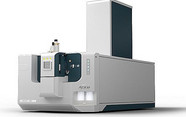Top tips for avoiding particle sizing failures with your laser diffraction method

contributed by Malvern Panalytical |
Particle size defines the performance of a wide range of different products, including cement, paints, inks, metal powders, cosmetics, foods and drinks.
Abstract
In this whitepaper, we provide some helpful tips on how to develop a robust method that will deliver reliable and reproducible data, efficiently, every time it is used. ISO13320, the standard for laser diffraction places considerable emphasis on the importance of method development, arguably ‘the last expert task’ associated with laser diffraction, and there is a wealth of helpful information in the public domain. Here we focus on what you really need to know to develop a new method, to troubleshoot if things go wrong, and the tools that can be helpful.
Introduction
Particle size defines the performance of a wide range of different products, including cement, paints, inks, metal powders, cosmetics, foods and drinks. Measuring relevant particle size data is therefore essential in many industries, with laser diffraction usually the technique of choice. Fast, highly automated and suitable for measurement across a broad size range, 0.01 to 3500 μm, modern laser diffraction systems have reduced particle sizing to a matter of sample loading and push button operation, providing that a suitable method is in place.
Log in or register to read this article in full and gain access to The Analytical Scientist’s entire content archive. It’s FREE!

















